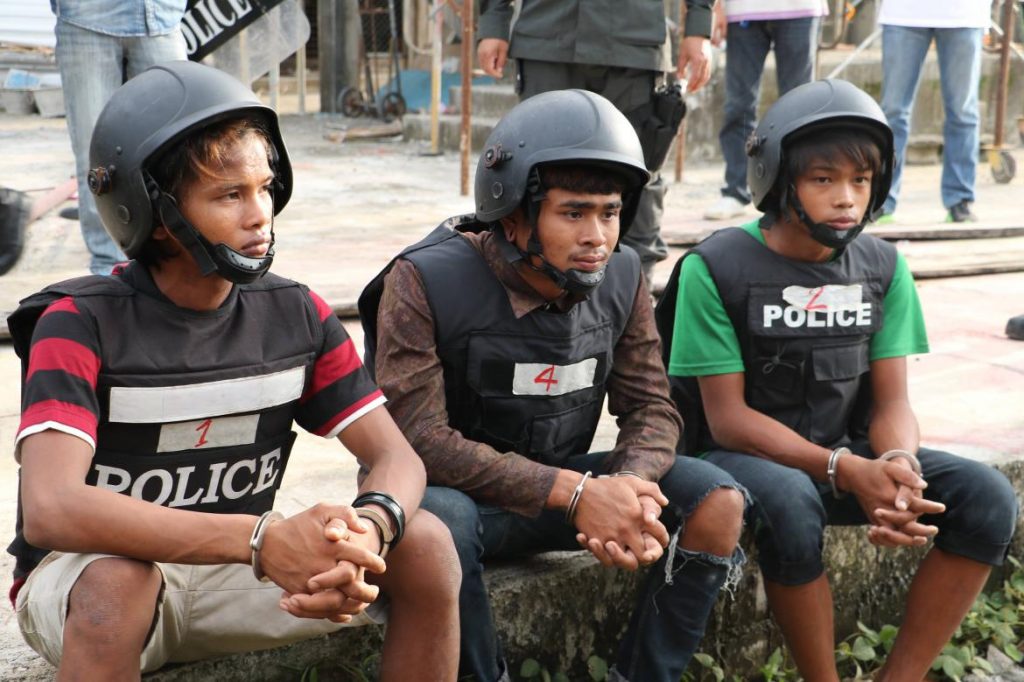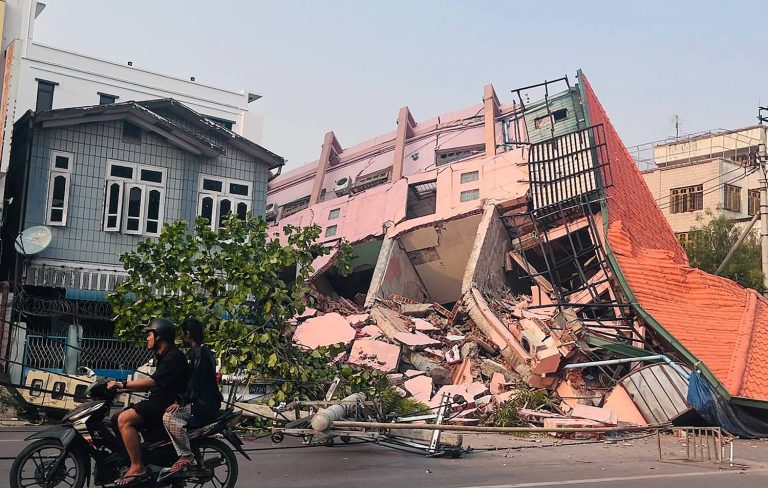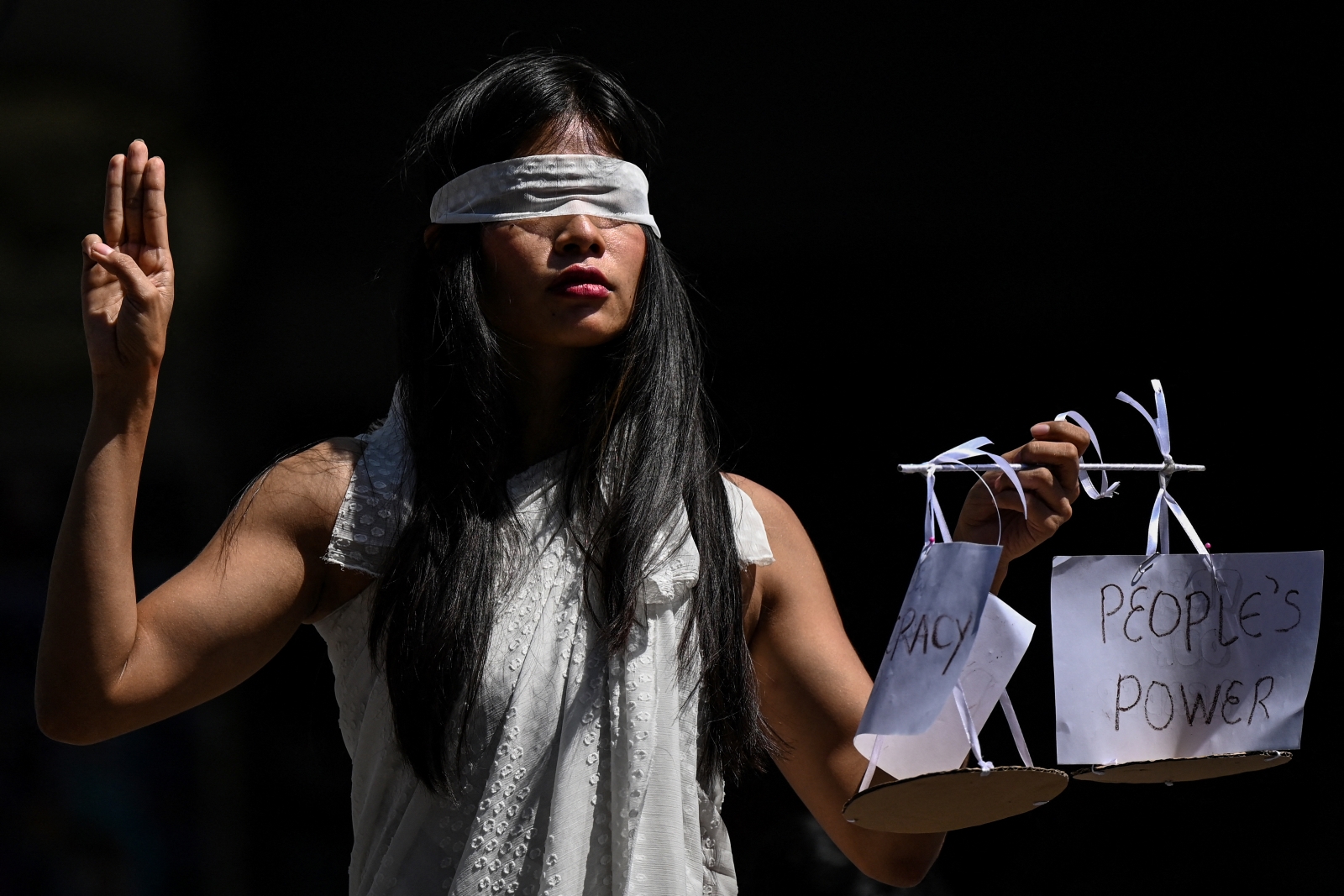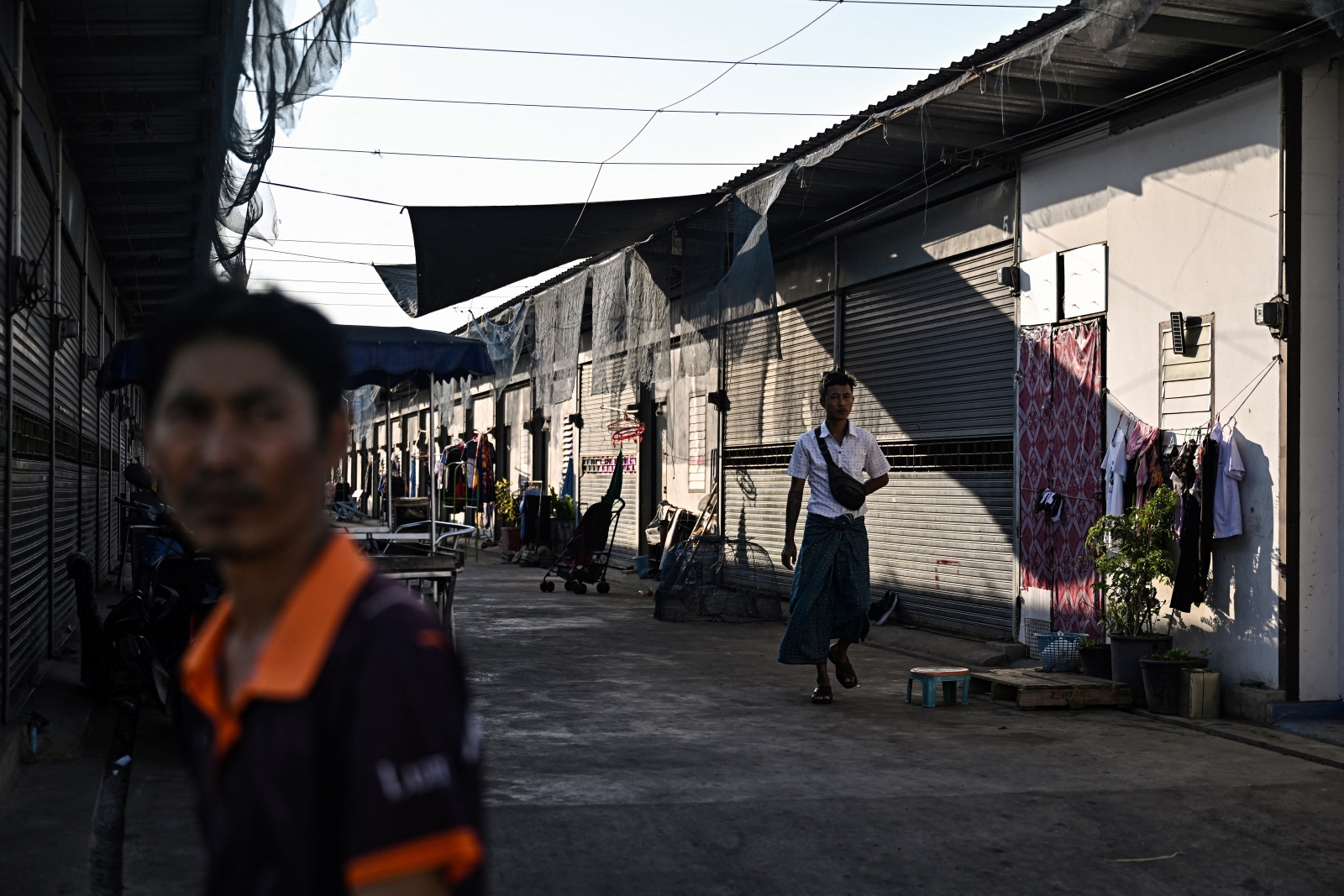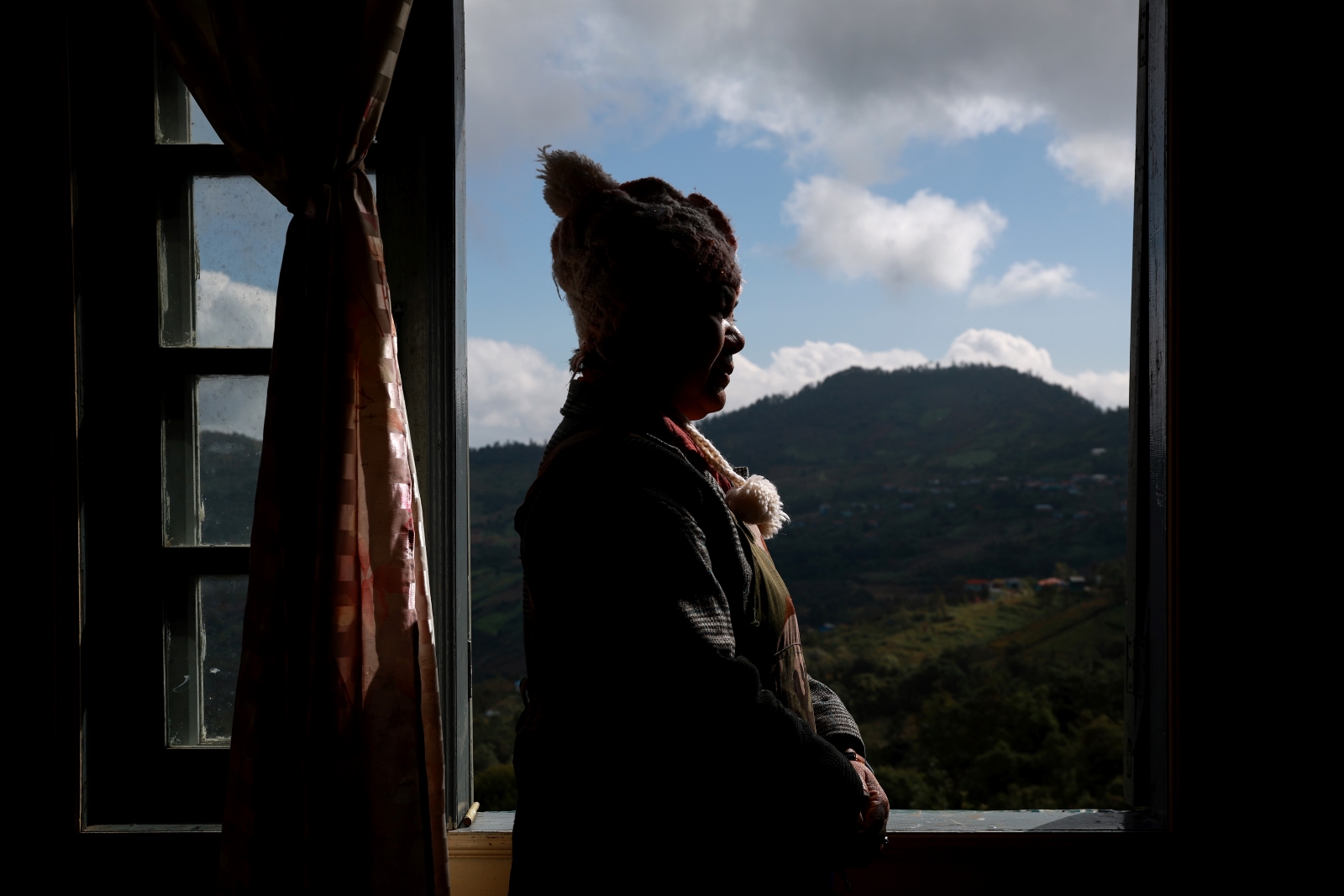By HTUN KHAING | FRONTIER
YANGON — Thailand’s Ranong district court is expected to deliver its verdict next month on the fate of four young Myanmar migrant workers charged with the 2015 murder of a 17-year-old schoolgirl.
The suspects, who are aged between 18 and 25, confessed to their involvement in the fatal stabbing of Ms Orawee Sampaotong, who was known as Apple. But they later claimed to be innocent, saying they signed the confessions after being tortured by Thai police.
If they are found guilty, all four men may face the death sentence, said U Htoo Chit, the executive director of the Foundation for Education and Development (FED), which supports Myanmar migrant workers in Thailand.
In an interview with Frontier, Htoo Chit drew parallels between this case and the high-profile conviction, in 2015, of two Myanmar migrant workers, for the murder of British backpackers, David Miller and Hannah Witheridge, on the Thai holiday island of Koh Tao.
Support more independent journalism like this. Sign up to be a Frontier member.
Htoo Chit was the spokesperson for a committee formed by Myanmar’s embassy in Thailand to investigate the Koh Tao case. Ko Zaw Lin and Ko Win Zaw Tun, known as Wai Phyo, lost their appeal against the death sentence in March 2017.
In both instances, Htoo Chit said, the accused were scapegoats. The defense, in both cases, accused the police of using abuse and intimidation to extract confessions and of mishandling critical pieces of evidence, including DNA samples. Neither of the trials have been fair, he said.
He said Thai police had a history of convicting innocent Myanmar migrant workers in the place of Thai nationals. The Koh Tai murder case was among the first of these cases to gain international attention, he added, because the victims were British tourists.
Frontier was unable to reach the prosecution for comment.
A botched investigation?
Police found the body of Orawee Sampaotong on September 28, 2015. They did not arrest any suspects until almost one month later, a detail that the defense says is a major flaw in the case.
On October 20 police arrested the primary suspect, Ko Moe Zin Aung, who was then aged 15, and his elder brother, in connection with the murder, according to Htoo Chit.
The brothers, who come from Ywae Su village, in Mandalay region’s Patheingyi township, were arrested in Khuraburi, which is over 100 kilometres from Ranong province.
Having released Moe Zin Aung’s brother, on October 23, police arrested Ko Sein Ka Tone and Ko Kyaw Soe Win. They arrested Ko Wai Lin the following day.
In January 2016, the parents of the four accused men asked for legal assistance from the Thai Department of Special Investigation, the National Human Rights Commission of Thailand, the Lawyers Council of Thailand and the Myanmar embassy. The parents said the suspects were tortured while being held.
Kyaw Soe Win later told the FED that police had strangled and punched the suspects. Speaking on behalf of all four men, he said they were also blindfolded, threatened with a gun, suffocated with a plastic bag and kicked in the genitals.
He has said the police dictated confessions to the suspects, including a timeline of events on the day of the murder. They had no choice but to accept, he said, and they signed because they were afraid.
“The way the Thai police handled Moe Zin Aung is suspicious,” said his mother.
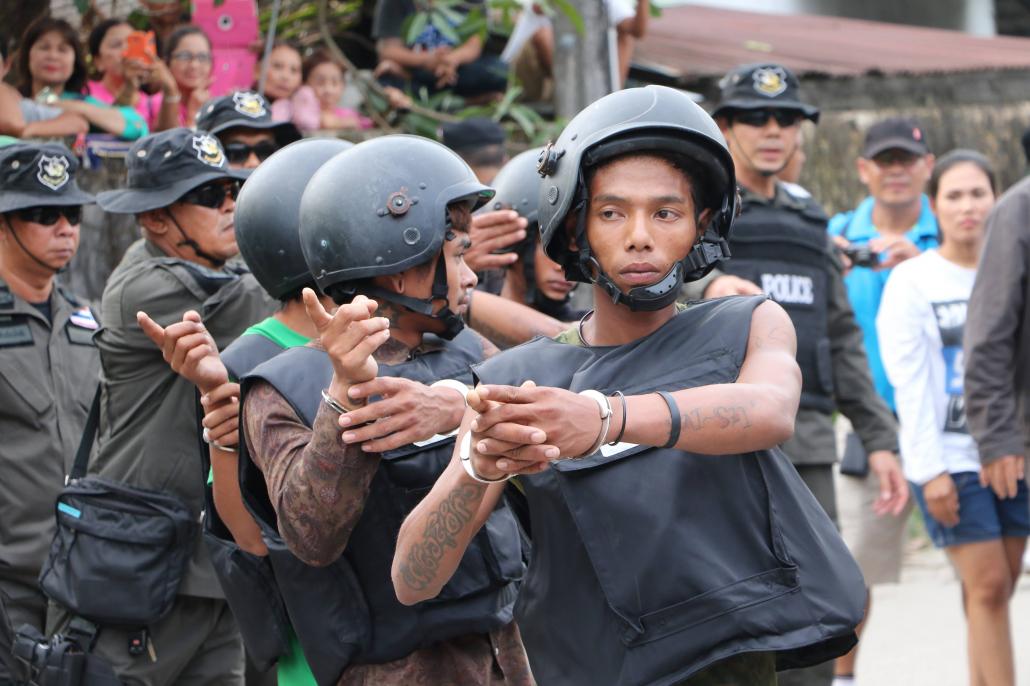
The young men were arrested almost one month after the incident. (Supplied)
Police said cuts on Moe Zin Aung’s body and clothing linked him to the crime. But Moe Zin Aung says the injuries were from a motorbike accident and that he was working at a fish-processing factory at the time of the murder.
Ko Par Kyaw, a Myanmar activist involved with the case, previously told Frontier that Moe Zin Aung’s Thai employer presented police with CCTV footage to prove this.
Police took the computer, Par Kyaw said, telling the employer they needed to examine the footage, but when they returned it, the footage had been erased.
Frontier could not reach the Thai police for comment.
In Thailand, where at least 1.4 million Myanmar migrants are working, often illegally or in low-paid jobs, authorities have been known to arrest Myanmar nationals for crimes they did not commit, Htoo Chit said.
Police found DNA under the victim’s fingernails and a knife used by the killer, which did not match the DNA of any of the four suspects, he said, quoting testimony given at Ranong court by the doctors who examined the evidence.
The defense believes a former friend of Orawee Sampaotong is responsible for her death. Par Kyaw told Frontier in 2015 that she killed her friend due to jealousy over her relationship with a boy.
The friend’s parents are rich, said Par Kyaw. They own a seafood processing plant and have powerful friends, including a senior police officer
“The whole of Ranong knows her friend did it,” he said.
Htoo Chit said the facts favour the four Myanmar workers, but he fears this may not be enough. He is hoping that Myanmar’s government will intervene.
“We are not asking the government to interfere in the legal system of another country. We just want them to request a fair trial.”
U San Maung Oo, Myanmar’s labor attaché in Thailand said the Myanmar embassy has been following the case. “We have assigned a labour attaché in southern Thailand to watch this case and the embassy has supported the suspects by providing them with documents,” he said.
San Maung Oo said Myanmar will not interfere with the verdict of the Thai court, and he denied accusations by the defense that Myanmar’s government had done nothing for the suspects.
Htoo Chit said FED had written to government officials including Daw Aung San Suu Kyi and Hluttaw MPs but had received no reply.
“While Thai business-owners are testifying on behalf of the suspects, the Myanmar government should say something,” he said.
“The government can save their lives. I don’t understand why they don’t act.”


